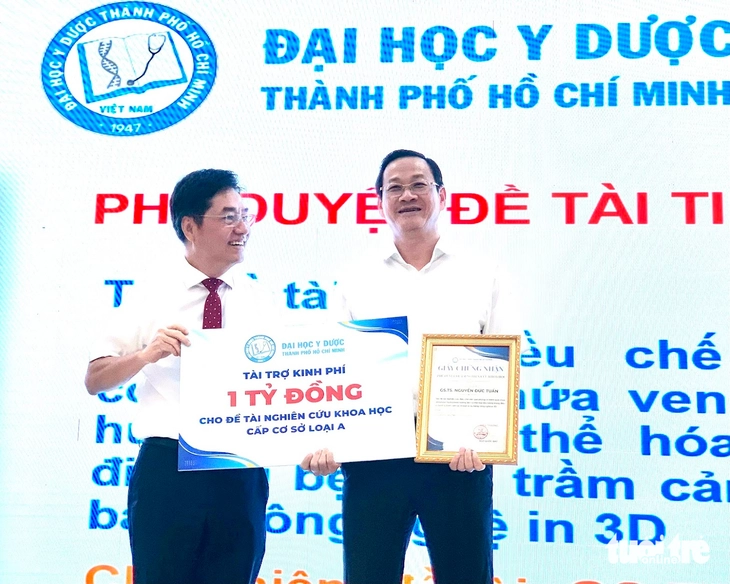
Prof. Dr. Tran Diep Tuan - Chairman of the University Council of Ho Chi Minh City University of Medicine and Pharmacy - awarded the sponsorship certificate to the representative of the research group of the type A grassroots project - Photo: TRAN HUYNH
Speaking to Tuoi Tre on November 6, Associate Professor, Dr. Tran Ngoc Dang - Head of the Department of Science and Technology of Ho Chi Minh City University of Medicine and Pharmacy - said that after promulgating the regulations on the establishment and operation of strong, approaching strong and potential research groups in August 2025, the movement to build research groups at Ho Chi Minh City University of Medicine and Pharmacy has received positive responses from units throughout the school.
Recognition of the first two strong asymptotic research groups
The Science and Technology Advisory Council for selecting research groups of the University of Medicine and Pharmacy, Ho Chi Minh City, has met and officially recognized the first two strong asymptotic research groups, with an investment of up to 3.5 billion VND for the two groups within 5 years, specifically:
The Gastric and Esophageal Disease Study Group (GESG), led by Associate Professor, Dr. Vo Duy Long - Department of Gastroenterology - University of Medicine and Pharmacy Hospital, Ho Chi Minh City - is the group leader.
The group focuses on research on molecular biology, early diagnosis and screening, minimally invasive surgery applications in treatment, multimodal treatment, individualization and quality of life of patients with gastric cancer, esophageal cancer and other benign diseases.
Gastro- Hepato Integrated Research Team (GHIRT), led by Associate Professor, Dr. Quach Trong Duc, School of Medicine - University of Medicine and Pharmacy, Ho Chi Minh City.
The research group focuses on screening, early diagnosis, minimally invasive treatment and epidemiological research of digestive and hepatobiliary diseases; strengthens international cooperation, trains graduate students and develops scientific and technological products for practical application.
Associate Professor, Dr. Tran Ngoc Dang said that the formation of two strong asymptotic research groups is an important initial step in the strategy to develop the school's scientific research ecosystem.
"We expect these groups not only to create valuable scientific works, but also to build a professional research environment, inspire the younger generation and promote international cooperation in the field of medicine," Mr. Dang shared.
These two strong asymptotic research groups are the crystallization of leading experts and a generation of enthusiastic young scientists, representing the spirit of interdisciplinary cooperation and international integration in medical research. Members of the groups come from many different fields, but share the common goal of creating research works with scientific value and practical impact.
Not only aiming to improve international publication capacity, the groups also focus on training the next generation, building a professional, dynamic and creative research environment, transferring advanced technology, gradually affirming their position to reach the title of "Strong Research Group" in the future.
At the same time, the school also encourages new research groups to continue to register to participate, joining hands to build a dynamic, creative, and integrated research community, contributing to improving the school's scientific and technological capacity.
Maximum support of 2.5 billion VND for strong research groups focusing on solving health problems
According to the new regulations, the school classifies research groups into three levels: strong, close to strong, and potential research groups, with specific funding levels:
Strong research group: maximum 2.5 billion VND in 5 years; priority given to chairing state-level, ministerial-level and type A basic topics. Group leaders and key members receive a 50% reduction in teaching hours.
Strong asymptotic research group: maximum 1.75 billion VND in 5 years; priority given to provincial-level topics and type B basic topics. Group leaders and key members are converted to 40% of annual scientific research hours.
Potential research group: maximum 1.25 billion VND in 5 years; priority given to chairing type B topics, converted to 30% of annual scientific research hours.
All three groups are given priority in using facilities, international cooperation, attracting experts, supporting graduate students, commercializing research results and rewarding scientific publications and achievements.
Sponsored group activities include: group work, scientific seminars, conferences/workshops, writing camps, field trips, work assignments, international collaborations, outsourcing services and other content as proposed by the group.
In addition, the school will provide 1 billion VND for basic level A projects, 300 million VND for type B projects and 30 million VND for traditional projects. Strong research groups will be supported with 500 million VND/year, strong asymptotic groups with 300 million VND/year to promote research activities.
Prof. Dr. Tran Diep Tuan - Chairman of the school board - said that the research orientation must be linked to practice and serve the needs of the people. "The school has an orientation to focus on research to solve people's health problems and prioritize these research areas, establishing strong research groups," Mr. Tuan shared.
Source: https://tuoitre.vn/truong-dai-hoc-y-duoc-tp-hcm-tai-tro-3-5-ti-dong-cho-hai-nhom-nghien-cuu-chan-doan-som-ung-thu-20251106153355717.htm






![[Photo] Da Nang: Hundreds of people join hands to clean up a vital tourist route after storm No. 13](https://vphoto.vietnam.vn/thumb/1200x675/vietnam/resource/IMAGE/2025/11/07/1762491638903_image-3-1353-jpg.webp)

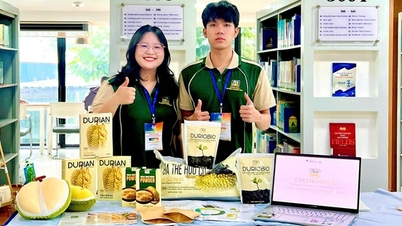

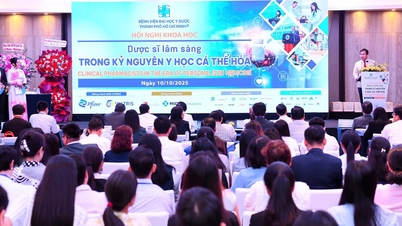



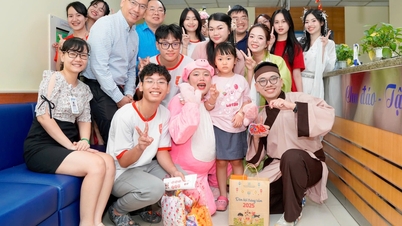


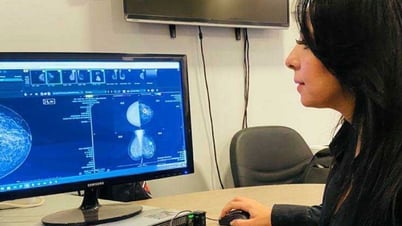
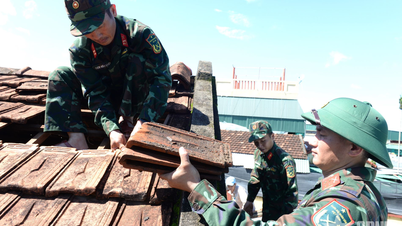

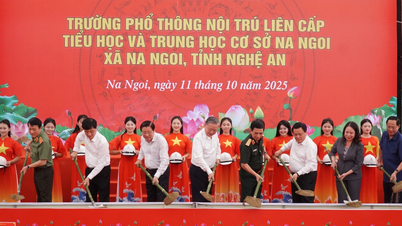




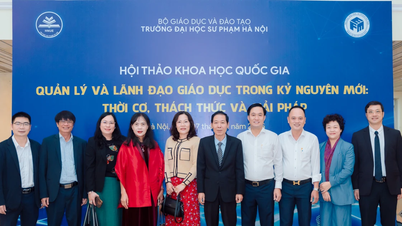














































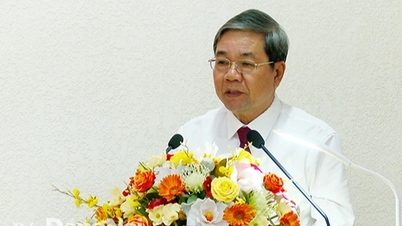
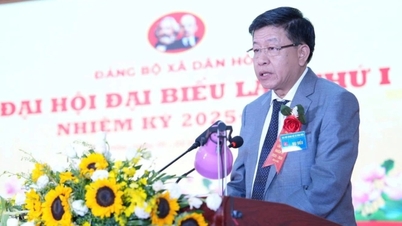


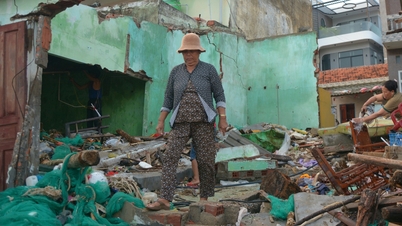


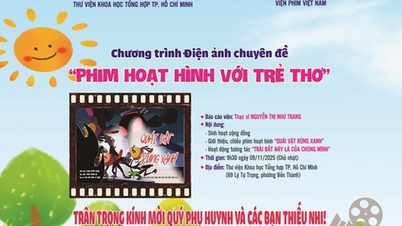

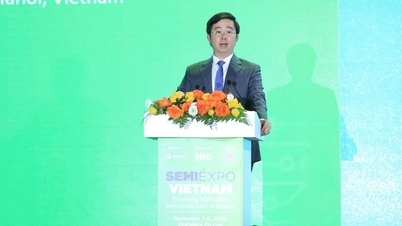

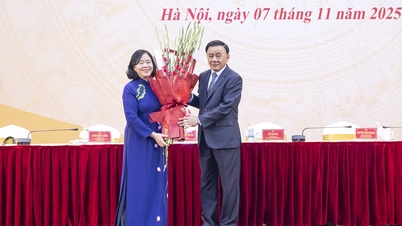




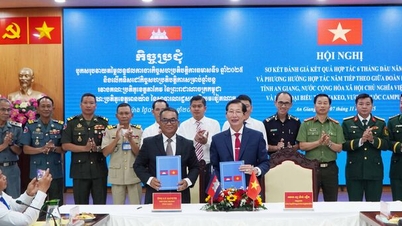

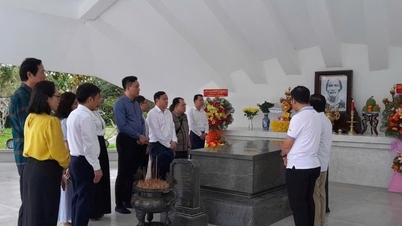



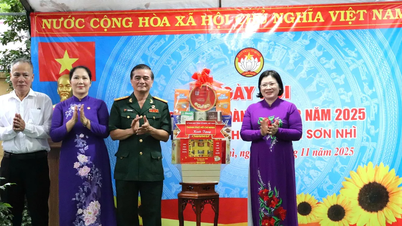
















Comment (0)